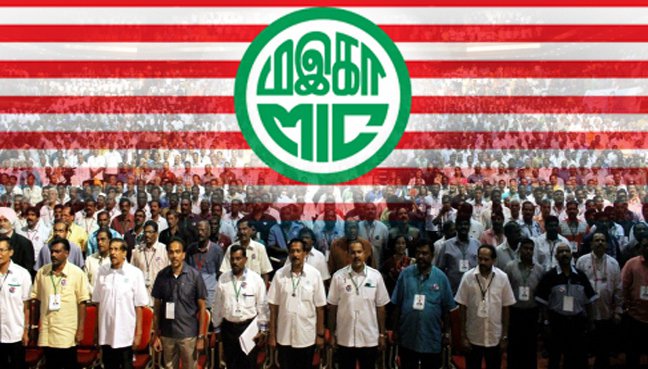DATUK Seri Anwar Ibrahim’s appointment of only one Indian Cabinet minister has aroused criticism from some sections of the Indian community.
Pakatan Harapan (PH) supporters regard it as a disappointment considering that Indians make up more than 40 % of the PKR membership.
Although the selection of deputy ministers is still on-going, the Indian community expects that this under-representation could be rectified.
Since Merdeka, there have been at least two ministers from the Indian community. The only time when it came down to one was during the long tenure of the late Tun S. Samy Vellu when there was one minister (himself) and two deputies.
A high point in Indian ministerial representation was when Tun Dr Mahathir Mohamad – during his second stint as prime minister from 2018 to 2020 – had appointed four Indian ministers, namely Gobind Singh Deo, Xavier Jayakumar, M. Kulasegaran and P. Waytha Moorthy.
Possibly, this high point will never be reached again for Indians. Indian political expectations worldwide have been rising since Rishi Sunak was appointed as prime minister of the United Kingdom.
Generally, the disillusioned Malaysian Indian community is not much bothered about the number of ministers as what is more important for them is the improvement in their socio-economic wellbeing in resource-rich Malaysia.
It is a major grievance of Indians that the MIC, which claimed to solely represent them since Independence, has not served as a catalyst for the upliftment of Indians.
However, it is too much to expect for the MIC, instead of the government, to help the community on a larger scale considering that the MIC is also a poor man’s party with little or no resources of its own.
Whatever resources the party had was utilised for education, which is one of the party’s salient points.
The party is often faulted due its leadership at various levels for being self-seekers and grabbing whatever little hand-outs given by the government for the poor Indians.
It is no point blaming the MIC for the poverty of Indians when upliftment programmes for the Indians, like that of the Malays, need billions of ringgit.

The government, especially from the late 80s to the present, should be blamed for this. The government conveniently grouped the community as non-Malays and deprived this loyal and hardworking community of major affirmative action programmes.
The Indians have lost out on every aspect of national life. About 50–60 % of the community are doing well due to their diligence, focus on education, the acquiring of better skills, some help from the government and others reasons.
Even in professions where Indians were dominant in the years before and after Merdeka, they are losing out due to discrimination, monopolies and the lack of opportunities.
Only through an effective shared prosperity and affirmative action programme for all communities – Malays, Indians, Chinese, Eurasians and East Malaysians can the country achieve high income status in the future.
Needless to say, the New Economic Policy (NEP) has to be re-cast again to ensure shared prosperity for all Malaysians.
The Barisan Nasional (BN) manifesto of RM 2,208 basic household income is a good starting point to eradicate poverty holistically.
Anwar’s government will be strongly buttressed and stable for the next five years if he can overcome the various shortcomings in the affirmative action for the poor Bumiputeras whose poverty rate is still striking despite some “syok sendiri” statistics by the previous governments that they have been successful in eradicating poverty.
This is a major weakness that the Opposition can exploit. The affirmative action programmes for the Malay poor have been hijacked by the Malay elite and politicians who have become multi-millionaires and billionaires.
It is not the government’s business to create a capitalist class of millionaires or billionaires through quick-rich schemes for this group.
Their wealth should be through hard work, business acumen and investments. Due to their greed there is a high level of Malay urban/rural poverty as the government’s upliftment programmes have been diverted or short-changed for the elites’ benefit.
Anwar, more than any other premiers except possibly Datuk Seri Najib Razak, knows the plight of Indians and how the community has placed much trust and hope in him to uplift them through meaningful affirmative action programmes.
Anwar’s personal touch with Indians throughout his long years of suffering, sometimes through his fondness for singing Tamil and Hindi film songs, have endeared him to the community.
Indians are not so much concerned about the number of Indian ministers, although for the sake of tokenism or symbolism Anwar can appoint one or two according to his needs.
Indians are more focused on whether Anwar will address the long-time grievances of the community comprehensively.
Indians are expecting a wide array of benefits from Anwar’s government ranging from affirmative actions for the B40 to government jobs, better Tamil schools, higher intake of Indian students into public tertiary institutions, upliftment programme funds and loans, permits, licences, contracts, projects and others – benefits that they have been deprived of for the last few decades.
Now that the Indian community’s support for the MIC is minimal and their electoral support has switched to PKR and the DAP which now have more Indian MPs, Indians will rely more on Malay and Chinese party leaders to have their voices heard.
Now that Indians have deserted or rejected the MIC en masse, the curtain could possibly fall on the MIC – one of the nation’s oldest political parties – in the near future.
The revival of the MIC appears to be a long shot as the party lacks dynamic and transformative leaders who can galvanise the Indian community. – Dec 8, 2022
V.Thomas is a Focus Malaysia viewer.
The views expressed are solely of the author and do not necessarily reflect those of Focus Malaysia.
Main photo credit: Malaysiakini










